The 2020s have long been a decade used in science fiction movies, TV shows, and novels to represent a far-off, distant future. Amazingly, we’re not only living in that decade now, but already headed into year two of it!
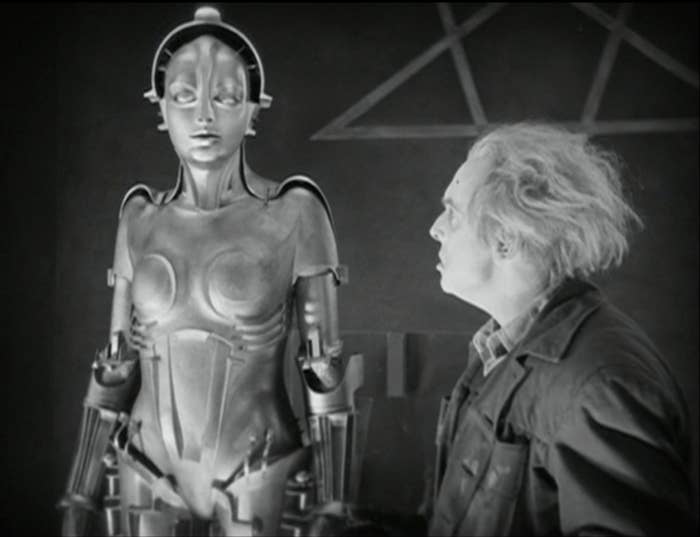
This got me thinking about BuzzFeed's younger readers, many of whom will live to see calendar years even more mind-bogglingly futuristic, like 2080, 2090, and even 2100. What will life be like for them over the course of their lives? How many changes will they see over the next 10–80 years?
To find out, BuzzFeed connected with some of the world's leading futurists and asked them to forecast what the years to come might bring. Here are their fascinating and thought-provoking insights:
Public transit will be radically different in the future — and traffic will be a thing of the past.
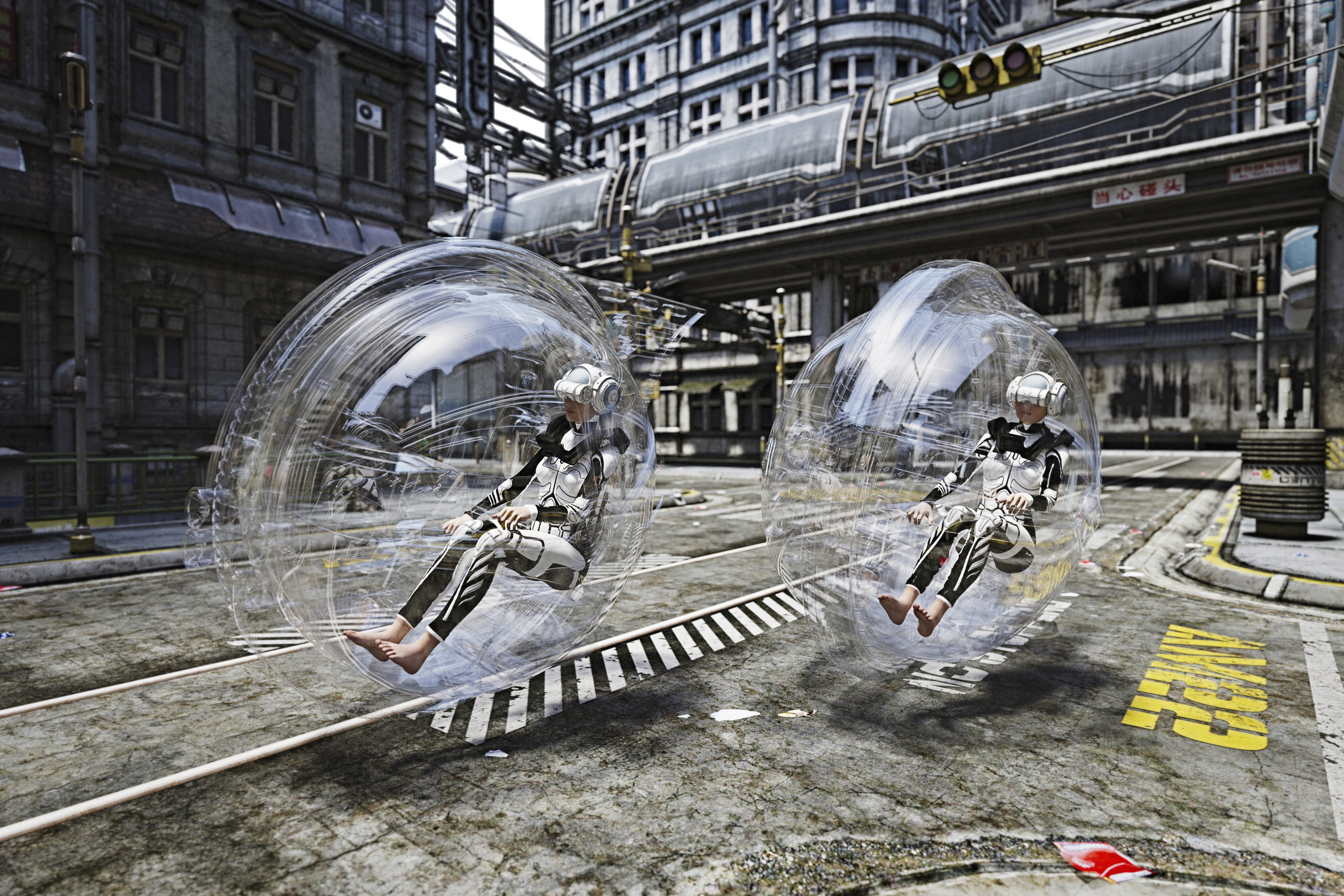
Family road trips will be in self-driving recreational vehicles accessorized with robot assistants and food replicators.
"Self-driving RVs will pick you up from your home and be pre-programmed to drive the route you chose (including parking themselves in the designated spaces in RV parks), and they'll stop along the way at national parks...with reservations, of course. The RV will have internet-on-the-go to allow the kids to play computer games when the vehicle is in motion. The entertainment module will be tailored to the child’s age and interests so that you will never hear, 'Are we there yet?' The RVs will be equipped with food replicators, so if the parents don’t want to cook, they won’t have to. Robots will handle the setup and tear down, including making sure that the black water is flushed. All the family has to do is enjoy their time together on this all-inclusive holiday."
Space travel will become increasingly common to the point where we may create human colonies in our solar system — and potentially, eventually, beyond!
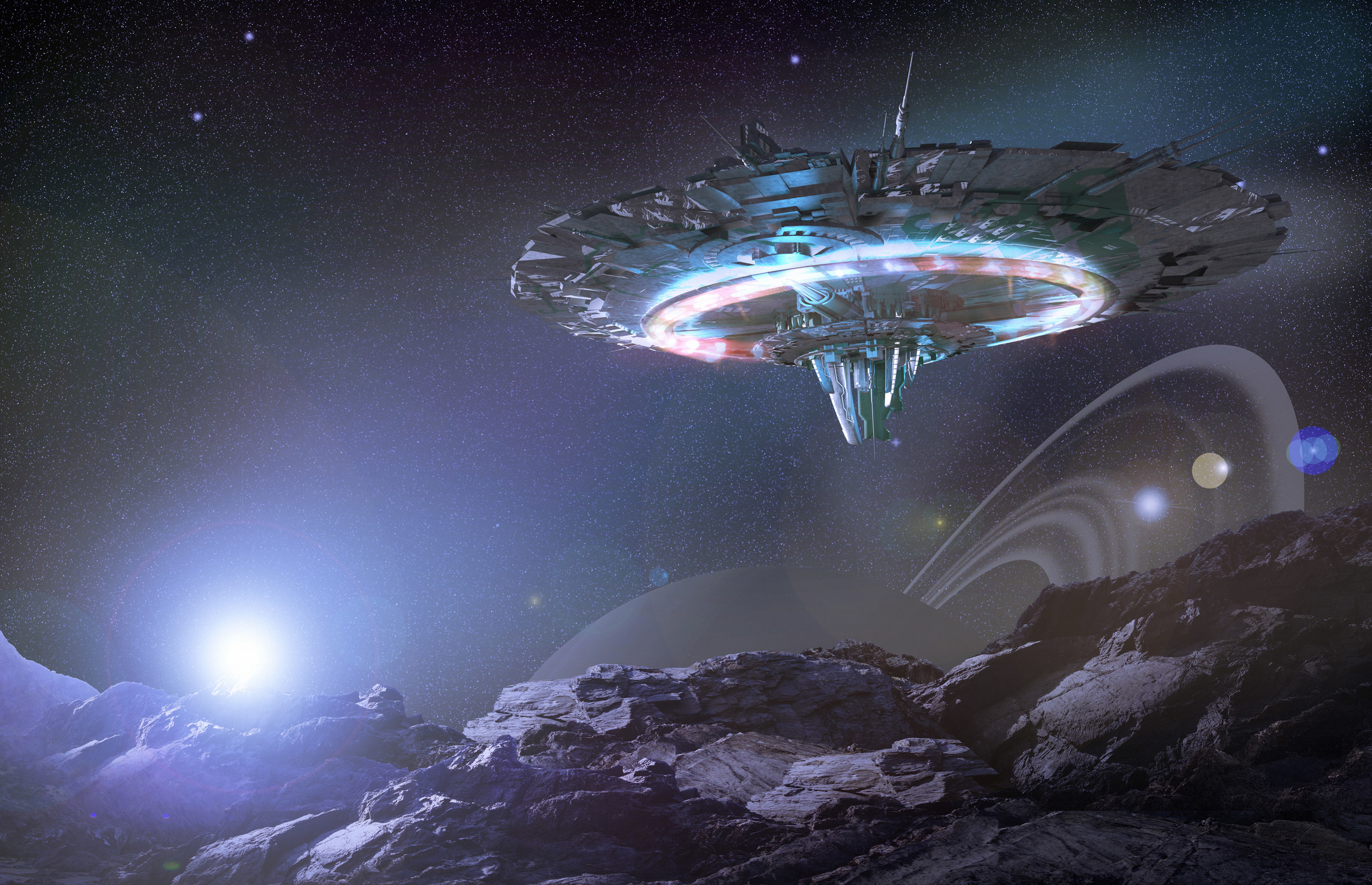
Alternatively, our grand attempts to expand humanity into outer space may fail and be abandoned.
"We'll see efforts to construct a Mars and Lunar base, however, this is very much 20–30 years out and not the grand visions painted by Elon Musk, but extremely limited and costly to the point where they'll be abandoned 20 years later as we face another economic and environmental collapse."
The next 10–25 years will determine whether humanity lives or dies.

How we make babies will no longer require a male and female participant — and this freedom will give all people a better ability to have the family they want.
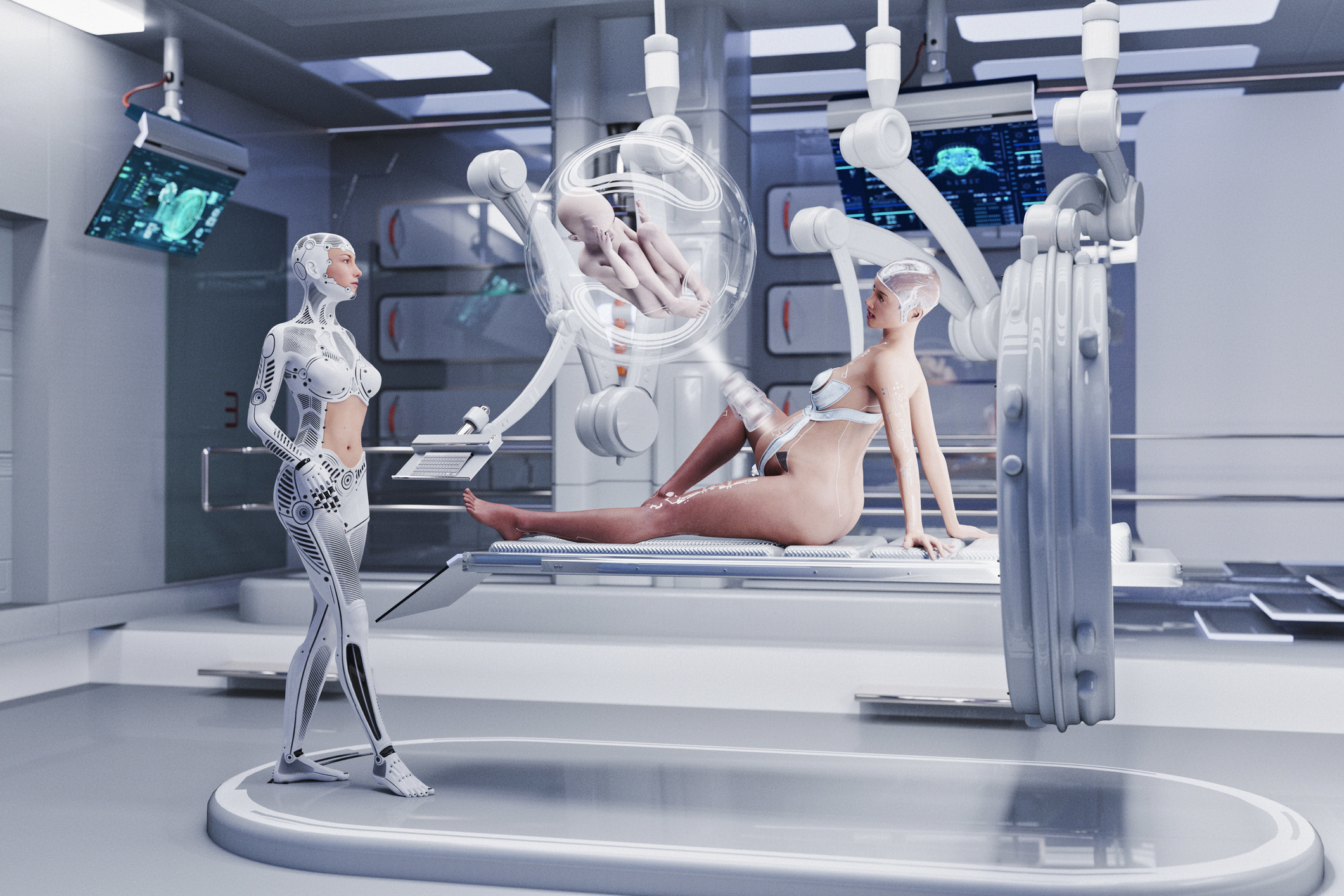
Synthetic biology — a new engineering approach to biology that lets us redesign cells — will revolutionize the future by allowing us to create things in laboratories that don't exist in nature.
"Forget the ages of hardware and software. The next decades will bring the time of wetware, i.e. biology in its sophisticated form.
Synthetic biology allows us to create organisms or biological systems in a laboratory that do not exist in nature. This is done with the help of predetermined DNA sequences called BioBricks. With the help of synthetic biology, we could try to solve big global problems like diseases, climate change, and hunger.
A great example of this is how it could dramatically change food production. It is possible, for example, to grow various proteins in gene-edited cells. This could mean manufacturing egg protein or milk protein in so called 'cell factories' in bioreactors. As a result, the future may bring a time when we give up using animals in food production, and significantly decrease the emission of greenhouse gases.
Synthetic biology also has challenges, which are connected to the ethics of its use. As a technology with huge possibilities for good and unfortunately for bad, we should be extra careful how and why it is used in the future."
You'll see a lot more of augmented reality and spatial computing (which could potentially allow you to do things like have a conversation with your friend in their room even though it's thousands of miles away from where you physically are).
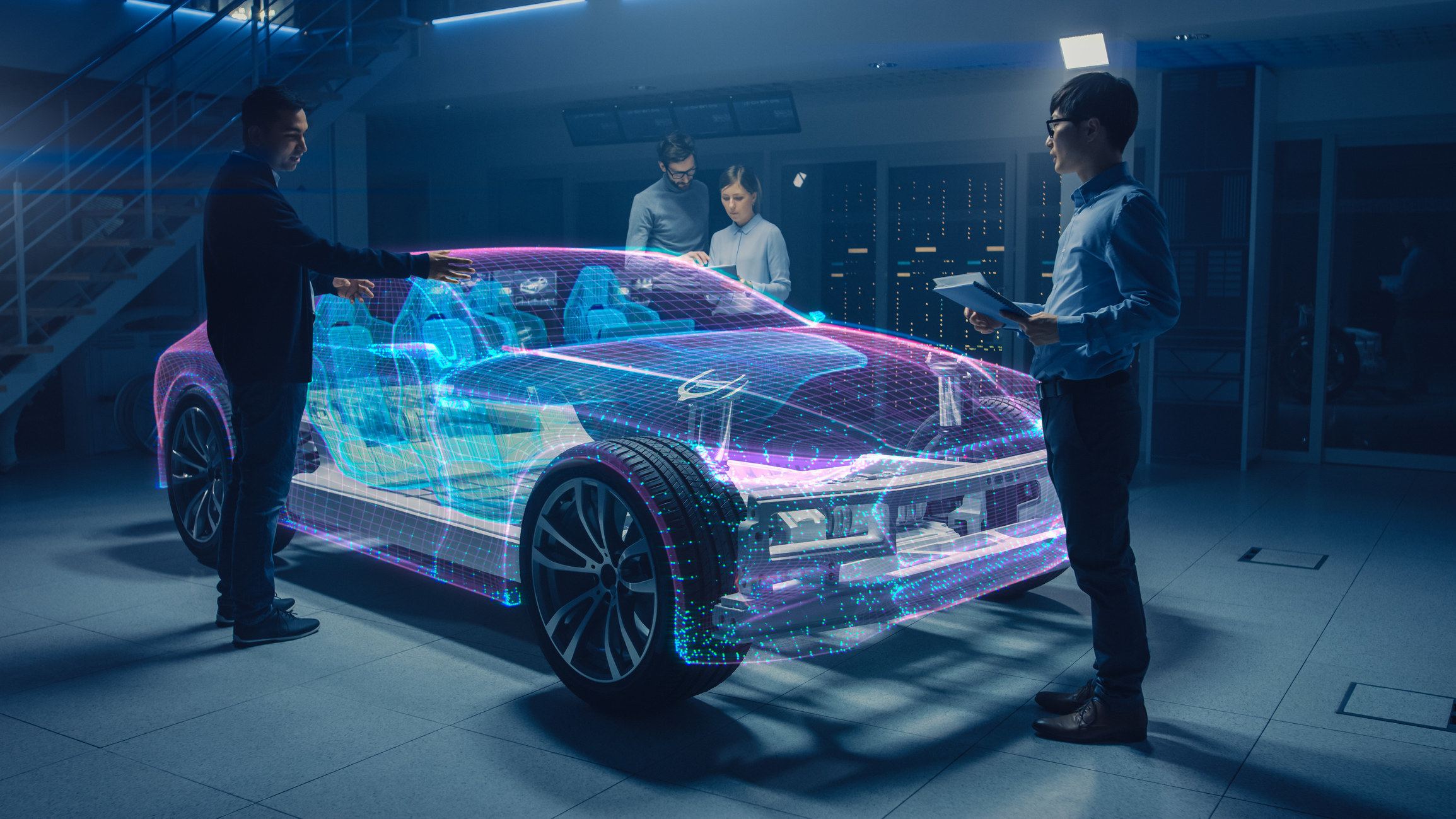
But brain-computer interfaces probably won't happen, and neither will singularity (which is good if you fear a future where technology overtakes us a la The Terminator).
"Further out, the promises of brain-computer interfaces like those envisioned by Neuralink will crack, and Kurzweil's dream of a singularity will disappear when we realize it's just too hard to achieve with our current technology and lack of understanding of the brain itself still."
We may be able to radically extend our lives — to the point of even becoming immortal!

But this newfound immortality may still, in the end, mean that the things that define us as individuals cease to exist.
"Some people may become immortal in this century through genetic manipulation, robotics, nanotechnology, computers, or mind uploading to virtual worlds. Immortality is not such a rare thing — some invertebrates are essentially immortal. Already we are getting glimmers of how to use brain-computer interfaces to link us to advanced artificial intelligences to expand our cognitive abilities.
If your body could survive indefinitely, would 'you' actually persist? All of us are changed by our experiences — and these changes are usually gradual, which means that you are nearly the same person that you were a year ago. However, if your normal or enhanced body survived continuously for a thousand years, gradual mental changes would accumulate, and perhaps an entirely different person would eventually inhabit the body. The thousand-year-old person — this orchidaceous Ozymandias — might be nothing like you. You would no longer exist. There would be no moment of death at which you had ceased to exist, but you would slowly fade away over the millennia, like a sand castle being transformed by an ocean of time."
